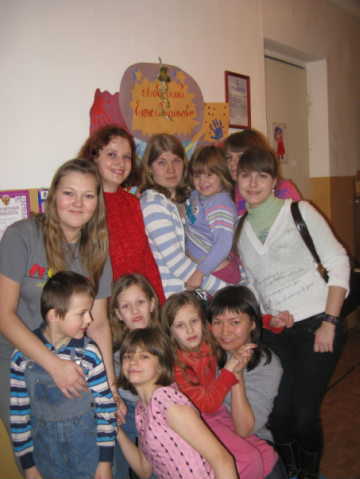YABLOKO Gender Faction took part in a discussion about women’s reproductive rights
Press Release, September 27, 2013
September 25 a round table discussion on reproductive rights, health and quality of life of women on the threashold of the International Contraception Day took place at the Central House of Journalists in Moscow. YABLOKO Gender Faction participated in the round table. The event was organised by the “Women Journalists” Club and “For Feminism” initiative group.
Opening the discussion Nadezhda Azhgikhina, Secretary of the Union of Journalists of Russia, outlined the importance of discussing the topics related to women’s reproductive rights, including the right to contraception and family planning. “We have to answer the questions that no one else is raises here,” she said.
Natalia Bitten, head of the project “For Feminism” and journalist, noted that without the ability to control her body and sexual health a woman can not lead a full life in the community. “It is necessary to oppose the trends enforced by our state,” she noted commenting of the proposals of some public figures to ban abortions as well as contraception.
All the participants of the round table supported the idea jointly resist the attempts of the state to impose patriarchal values onto modern women giving women only subordinate roles. Everyone at the round table agreed that aggressive imposing on multiple religious dogmas (both by the Russian Orthodox Church and on the part of Islam) on the society reduce the role of the woman to a reproductive function only, whereas in all the civilized countries women normally conscientiously plan all the issues related to motherhood – when and how many children they will have and how they will provide for a decent living standard of their children.
Mary Davtyan, lawyer and member of the Chamber of Advocates of Moscow of the Russian Lawyers Guild, told the participants how the Russian law regulates the rights of women in the field of family planning, reducing all the problems only to legally permitted abortions.
“Our lawmakers consider abortion be a method of contraception, and no effective work has been done in the field of family planning and the health of women, as well as educating women about effective methods of contraception,” such was the conclusion of the roundtable participants after Mary Davtyan’s speech.
Olga Radayeva, lawyer and member of the YABLOKO Gender Faction spoke about European liberal values, experiences and challenges. In hers speech Radayeva laid the emphasis on the modern liberal vision of the problem, as YABLOKO is member of large international organisations of liberals – Liberal International and the European Liberal Party ALDE. Women’s organisations of the Liberal International and ALDE actively protect the rights of women, insisting on recognition of women’s right to family planning and contraception worldwide. “Access to modern contraception methods is a universal human right and can significantly improve the lives of women and their children. Family planning, in the end, has a positive effect on the economic development, as more liberated, well-educated and healthier women make greater contribution to the economic development of their countries,” she said.
Radayeva also said that in 2012 the United Nations Population Fund released a report clearly stating that the right to contraception and family planning was an inalienable right of women. In addition, the report indicated that additional USD 4.1 million spent on the programmes in family planning and contraception worldwide, would save USD 11.3 billion on restoration of health of women and newborns.
Studies also show that freedom of women in the field of family planning, as well as affordable contraception for population (as, for example, insurance programmes laying the costs for contraception onto employers and not on women, introduced in the U.S. in 2012 ) lead to keeping up women’s health, reduction of the number of abortions and decrease of maternal deaths.
According to the UN data, 26 million unwanted pregnancies end in abortion out of 54 unwanted pregnancies in total in the world. If all women could have access to efficient modern contraception methods, the number of unwanted pregnancies and abortions would have declined. Numerous studies demonstrate that in countries where the population has broad access to information about family planning and contraceptive methods, the number of abortions dropped. Attempts by some states to ban abortions lead only to criminalization of this sphere and growth of post-operative complications and deaths among women.
Radayeva also noted that according to the organization “Choisir la cause de femmes” which conducted an extensive study of legislations of EU member states for the best practices in provision of gender equality, Denmark has the most favorable laws for women in the field of reproductive and sexual education, and the Netherlands in the field of family planning.
Lubov Yerofeyeva, highly qualified gynecologist, noted a low level of awareness among Russian women about contraception. “The use of contraception among Russian women is much lower than in European countries now,” she said.
In addition, the doctor noted that Russian women tended to believe in some mythical methods of contraception. “Science offers the modern woman a broad range of contraceptive methods. Unfortunately, many women go on using abortion as a method of birth control,” Yerofeyeva said.
“Abortion – it is a traumatic experience for a woman,” said psychologist Elena Arkhipova. According to her, women “may carry this burden for years,” and the responsibility that a woman feels for her actions can develop into a psychosis, and in this case only specialists can help to such women.
The participants of the round table also touched upon the topic of clericalism, which, in their opinion, presented a large threat to the Russian society, as propaganda of such views that a woman is subordinate to a man, as well as arguments about the “immorality of contraception” can throw Russia back in its development.
In conclusion of the discussion all the participants noted the need for sex education and raising the awareness on reproductive and sexual health.
Posted: October 9th, 2013 under Gender Faction, Human Rights.











